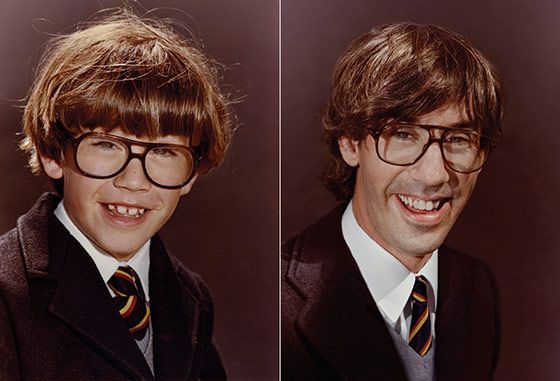
Science knows that our teenage years are extremely important in determining who we are. It's the time our bodies become adult and our brains rewire themselves to give us a sense of adult identity. It's also the time we learn our place among other people in the world, explore what to do with our lives, and begin mate selection. Through most of history, these changes would occur in the context of the larger world, among family and community. But in the last 100 years or so, we've expanded the role of education so much that teenagers spend about 16 hours a week interacting with adults and 60 hours a week with other teenagers who are just as clueless. This is akin to throwing them into a crucible, a "Roman amphitheater," in which cliques and hierarchies are determined by arbitrary standards such as athletic prowess, looks, or family wealth. The experiences of high school can leave scars for the rest of one's life.
In 2000, three psychologists presented a paper titled “Peer Crowd-Based Identities and Adjustment: Pathways of Jocks, Princesses, Brains, Basket-Cases, and Criminals,” which asked a large sample of tenth-graders which of the five characters from The Breakfast Club they most considered themselves to be, and then checked back in with them at 24. The categories were “immensely predictive,” according to Jacquelynne Eccles, one of the authors. (Criminals were still most apt to smoke pot; male jocks still had the highest self-esteem.) But one datum was interesting: At 24, the princesses had lower self-esteem than the brainy girls, which certainly wasn’t true when they were 16. But Eccles sees no inconsistency in this finding. In fact, she suspects it will hold true when she completes her follow-up with the same sample at 40. “Princesses are caught up in this external world that defines who they are,” says Eccles, “whereas if brainy girls claim they’re smart, that probably is who they are.” While those brainy girls were in high school, they couldn’t rely on their strengths to gain popularity, perhaps, but they could rely on them as fuel, as sources of private esteem. Out of high school, they suddenly had agency, whereas the princesses were still relying on luck and looks and public opinion to carry them through, just as they had at 16. They’d learned passivity, and it’d stuck.
From my vantage point, 24 seems
awfully young to say that anything "stuck," but I'm no scientist.
Besides, my high school was so small that everyone had to wear more than
one label. Still, now that my kids are in high school, I can see the
findings of the many different adolescent studies cited in this New York
magazine article playing out in their experiences. How has your high
school experiences shaped your life afterward? More

No comments:
Post a Comment